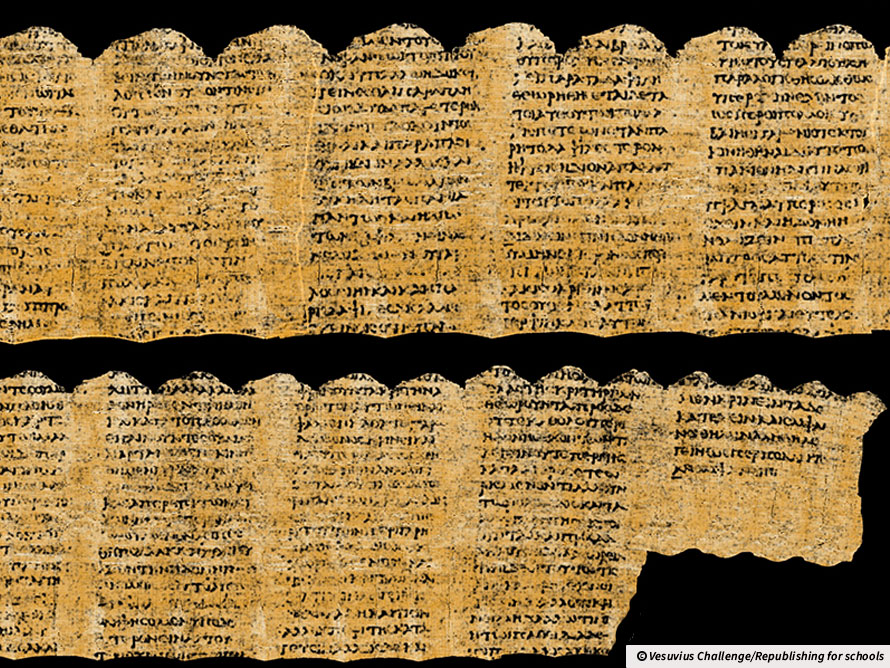Could this rewrite our history? Three students and an AI programme have found a way of digitally reading ancient books — and cracked open the door to a revolution in philosophy.
Unlocked: 2,000-year-old blog on life’s joys
 Out of the ashes: The scrolls come from a single library preserved by the volcanic ash.
Out of the ashes: The scrolls come from a single library preserved by the volcanic ash. Glossary
Aristotle - A student of Plato, tutor to Alexander the Great and the father of political philosophy.
Herculaneum - An ancient city that was buried under volcanic ash after the eruption of Vesuvius in AD79. It is close to Pompeii.
Vesuvius - a volcano near Naples, southern Italy. It erupted in 79 AD, destroying the Ancient Roman cities of Herculaneum and Pompeii.
CT scan - A computed tomography scan — a medical imaging technique usually used to make images of inside the body.
AI - A computer programme that has been designed to think.
Epicurean - A student or follower of Epicurus, an ancient Greek philosopher.
Capers - The pickled flower bud of a European shrub.
Palestine - An area located in the Southern Levant region of Western Asia.
Old Testament - The first part of the Christian Bible, and is mainly based on the 24 books of the Hebrew Bible (Tanakh).
